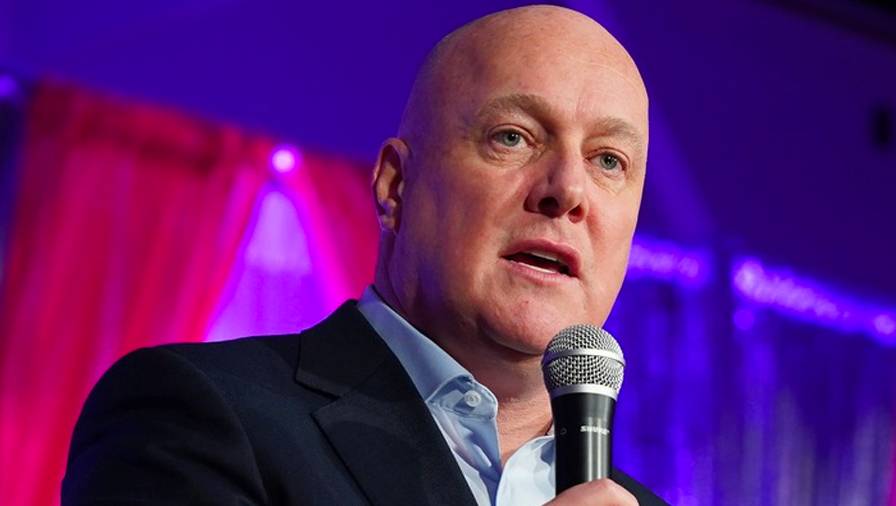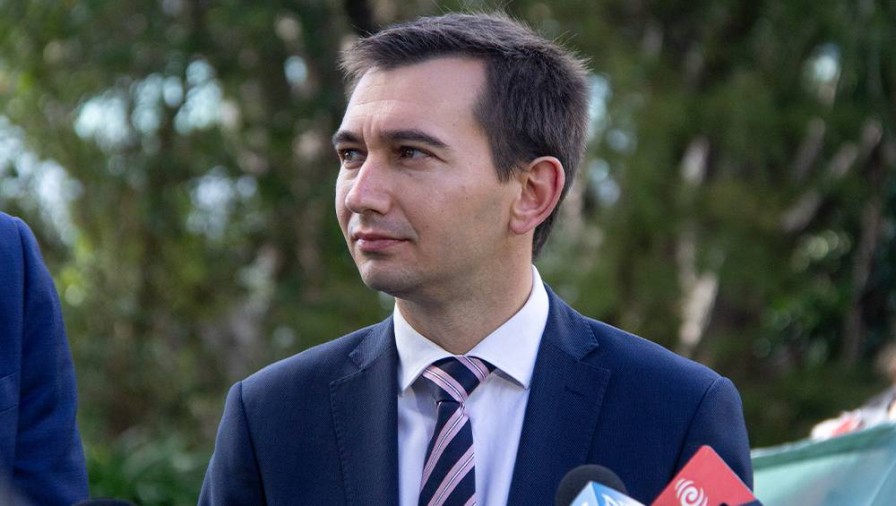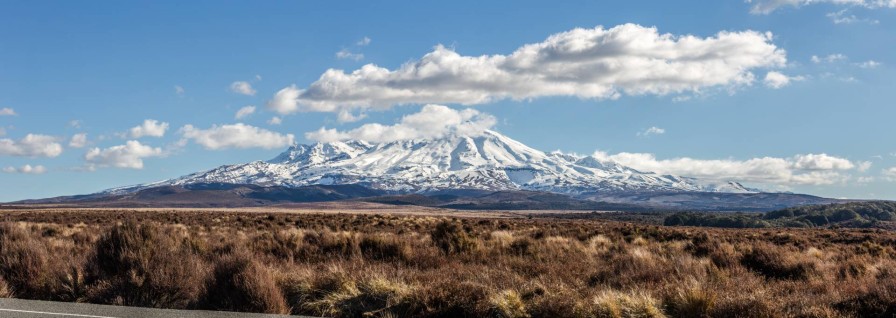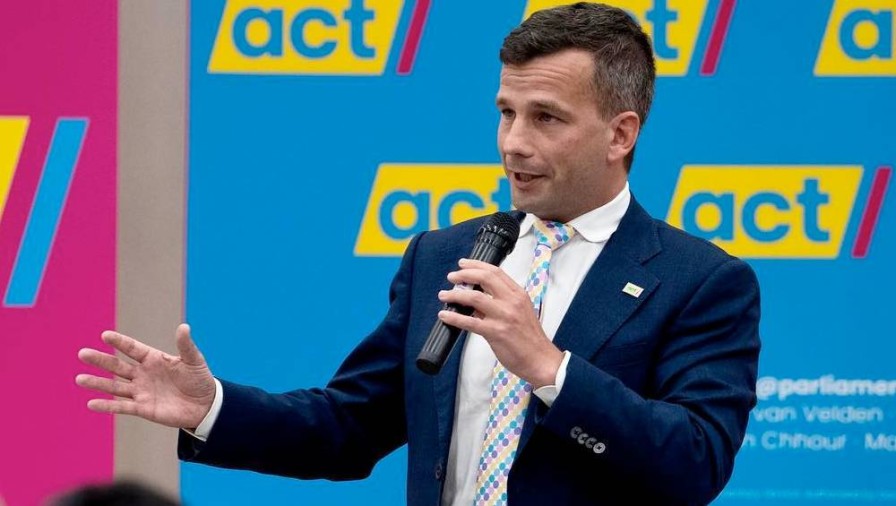Must-haves, electricity prices, Darleen Tana, the Treaty
ANALYSIS: PM says ratepayers are sick of white elephants and non-delivery.
WATCH: NBR political editor Brent Edwards speaks with Grant Walker.
ANALYSIS: PM says ratepayers are sick of white elephants and non-delivery.
WATCH: NBR political editor Brent Edwards speaks with Grant Walker.
Prime Minister Christopher Luxon was forthright in his comments to the country’s mayors this week.
Luxon told the Local Government New Zealand conference that councils should focus on the must-haves, not the nice-to-haves. While speaking at the Takina convention centre – the venue for the conference – he had a dig at the Wellington City Council, saying it had decided to spend $180 million on the centre, while its water pipes were bursting and other infrastructure was under strain.
“Ratepayers are sick of the white elephants and non-delivery. So, my challenge to all of you is to rein in the fantasies and to get back to delivering the basics brilliantly,” he said.
The Government is backing up his words with changes to the Local Government Act, aimed at directing council spending in what it considers the right direction.
None of this came without friction, as councils are calling for more local control, along with more financial tools to help them achieve it.

Prime Minister Christopher Luxon.
They did get some good news, with Local Government Minister Simeon Brown unveiling the Government’s framework for new regional deals aimed at getting better cohesion between central and local government on long-term plans for the regions they cover. And he is promising more funding tools, although he says many of these are already available under existing legislation.
But it might be possible, for example, for a council to impose a toll on a new road, or a bed tax. The Government is also still considering the Act Party proposal that it shares the GST revenue from new builds with councils.
Brown points out the Government has also announced its new water policy, which will allow new council-controlled water organisations to borrow up to 500% of their annual revenue from the Local Government Funding Agency.
All of this comes with a catch. Despite the talk of localism and giving power back to local communities, it will only happen if they meet the Government’s demand that they focus on the must-haves rather than the nice-to-haves.

Local Government Minister Simeon Brown.
What is a must-have surely is access to affordable electricity. But, in the past few weeks, the spot price on the wholesale market has gone through the roof and Winstone Pulp is planning to close because of the costs.
Ruapehu mayor Weston Kirton is asking for some sort of lifeline to be given to keep the business afloat, as it is in his region, pointing to the deal done to keep Tiwai Point open.
“There’s obviously lake levels and low production but, just over the next few months, there is going to have to be some sort of rebate to actually accommodate this situation,” Kirton told RNZ’s Morning Report programme.
Associate Energy Minister Shane Jones has been vocal on the issue, saying the power companies were making excessive profits and that, of every $4 paid out in dividends, they invested just $1 in new generation.
Jones wants the Electricity Authority to use its authority to haul the companies into line.
NBR’s Tim Hunter points out in his column this week that power companies have been embarrassed by their record profits.

Electricity generators have been reporting record profits at a time when prices have gone through the roof.
“It’s awkward when you have to announce record profits within days of your record high prices apparently putting people out of business,” Hunter wrote.
He said the perceived power price crunch would make politicians and regulators want to do something and, if they do, it would be like “watching two people playing Jenga wearing boxing gloves and blindfolds”.
Hunter concludes that, so far, the electricity market has not been effective in solving the problem of ensuring there is enough spare capacity to meet demand.
“The key issue will be whether they can find a mechanism to fund enough excess capacity to ensure New Zealand’s industrial businesses don’t keep going bust for lack of competitive energy supplies,” he wrote.
For Kirton – who says his region will be badly hurt by Winstone’s closure – a solution can’t come quickly enough.

The Ruapehu district faces the loss of Winstone Pulp, which is planning to close because of high electricity prices.

Darleen Tana is not making it easy for their former party.
Talking of solutions, none appears to be in sight for the Green Party just yet, after its former MP Darleen Tana told them in no uncertain terms they would not leave Parliament voluntarily and that they utterly opposed its intention to use waka jumping legislation to force them out.
Green Party members will vote on that proposal early next month, but if the Greens had hoped for a clean and relatively controversy-free expulsion of Tana, the party is doomed to disappointment.
Tana seems committed to making it as difficult as possible.
Meanwhile, the controversy over Act Party leader David Seymour’s Treaty Principles Bill rolls on.
It has prompted Luxon to reiterate that the National Party will not vote for the Bill beyond the select committee, a commitment backed up by New Zealand First deputy leader Shane Jones.
Both did that at Tūrangawaewae marae in Ngāruawāhia in front of the Māori King and Kīngitanga.
But Seymour, who did not attend the celebration of the coronation of Māori King Tuheitia, was unimpressed, saying his coalition partners might change their minds when they see the legislation.
It raises the prospect of coalition friction if National and New Zealand First stick to their commitments not to support the Bill beyond select committee. But that would not be a breach of the coalition agreement because both only agreed to support Act’s legislation to select committee and no further.
In National’s agreement with Act, it simply states: “Introduce a Treaty Principles Bill based on existing Act policy and support it to a select committee as soon as practicable.”
Seymour might be annoyed if it goes no further than that, but he can have no complaints that the coalition agreement has not been honoured.
In Luxon’s case, he will surely be relieved once it is no longer a topic of public debate, but there are still months of debate and discord to come.

Act Party leader David Seymour.
Next week, Luxon will spend most of his time at the Pacific Islands Forum leaders’ meeting in Nuku’alofa, Tonga.
Back here, Parliament will pass the Local Government (Water Services Preliminary Arrangements) Bill and the Resource Management (Extended Duration of Coastal Permits for Marine Farms) Amendment Bill.
On Tuesday, there will be estimates debates for the finance and children’s portfolios, which might again put Children’s Minister Karen Chhour in the spotlight as she faces more Opposition criticism over her handling of Oranga Tamariki and the Government’s use of military-style training for young offenders.